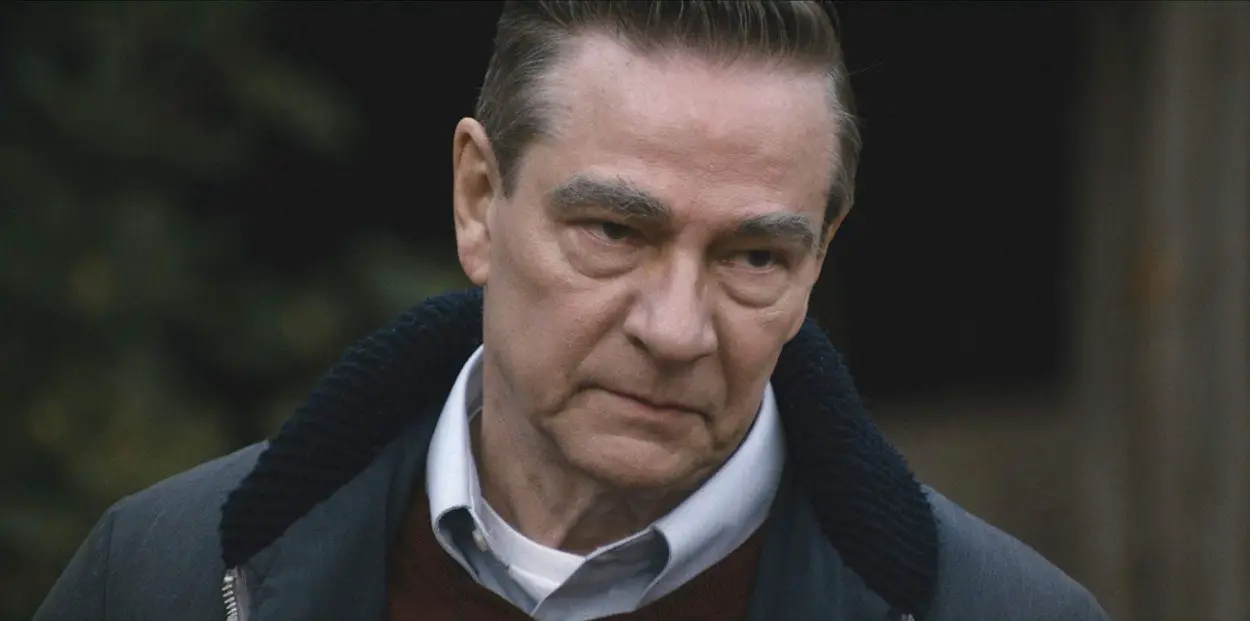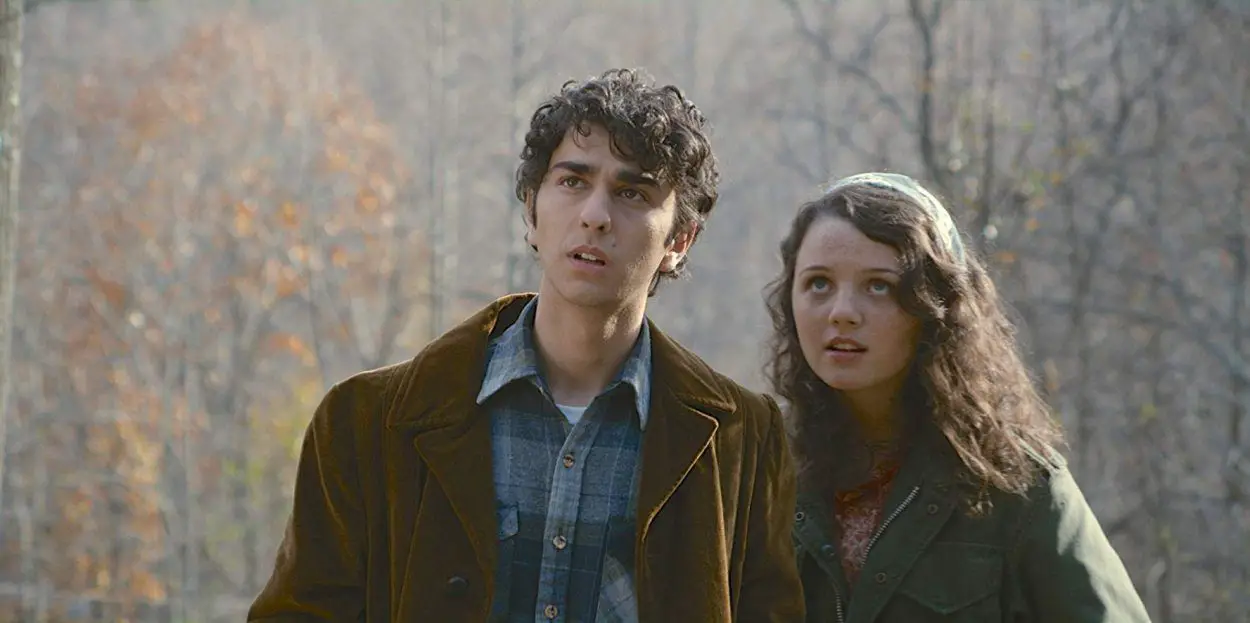With full disclosure, this very writer is an absolute sucker for a satisfying coming-of-age film. Their youthful themes keep us young and sway our sensibilities to reflect on our own lives, no matter our age. Admirable coming-of-age films are always welcome, but the exceptional ones deserve to be shouted out from the mountaintops. James Sadwith’s Coming Through the Rye won five Audience Award or Jury Prizes from film festivals at home and abroad through 2015 and 2016. This engaging dramedy earns that special distinction of exceptionalism and warrants all of the volume one can muster. It is streaming free with ads on YouTube or Vudu or through the Kanopy platform connected to many library networks.
In 1969, at the preppy Crampton prep school for boys in Pennsylvania, Jamie Schwartz (Alex Wolff of Hereditary and Patriots Day) is a downtrodden theater nerd suppressed and marginalized by the cliques of athletes and popular kids. Awkward around girls and too smart for the room, he has lost more friendships than he has kept and tends to fly on his own self-aware, worldly path. He breaks the fourth wall to introduce us to his plight-filled existence and how he got to this point.
Jamie has long been completely inspired by and obsessed with the Holden Caulfield character from J.D. Salinger’s seminal 1951 classic The Catcher in the Rye. He sees himself living the same tortured and troubled existence, so much so that he has adapted Salinger’s novel into a stage screenplay for his senior project. The inspired parallels consume him. For the character, finding a comparable example of overcoming a particular challenge stands to be a helpful and inspiring study. The only trap is that hero worship has its own limits and flaws.
To properly pitch the idea to his professors, Jamie seeks to acquire adaptation permission from Jerome David Salinger himself (Academy Award winner Chris Cooper—what a get), something the reclusive author never granted, not even for millions of dollars from Hollywood types like Elia Kazan. Take the notion of hero worship a step further. What would you say or do if you met your inspiration? What would they think of you and your emulation?

That hero or creator might say that no one can “get” them, or their work, but themselves. They might say that stealing, borrowing, copying, or adapting, even in devout tribute, devalues the original and becomes a different artist’s interpretation entirely. The inclination belongs to Cooper’s Salinger. He is a proud original creator protecting his work and himself.
After dead ends with Salinger’s publisher and agent, Jamie drafts an impassioned letter that is stolen and embarrassingly exposed by his classmates. Humiliated enough to leave school, Jamie decides to follow a tip on Salinger’s possible New Hampshire address and runs away, convinced he can pitch the author best in person. Talked out of hitchhiking, he gains a doting driver and kindred spirit in the form of DeeDee (Stefania LaVie Owen of Krampus). Their road trip of shared bonding and followed breadcrumbs becomes the film’s ambitious mission.
Jamie feels that staging The Catcher in the Rye at school can validate his value and his coolness independent from typical popularity. He feels that if others can see him play Holden, they will understand him better through the play’s performance and artistic expression that relates to him. The real truth is the courage to represent yourself, blaze your own trail, and create your own masterpiece with your own life, without standing on the shoulders of others.
Coming Through the Rye exudes a polish and a vibe that defines the film’s wit and tone. Cinematographer Eric Hurt (American Dreamer) moves his camera with both intimacy and distance to suit any scene. Encapsulating an outward voice all its own, the film boasts a dynamite soundtrack of original songs from songwriter Jay Nash and composers Greg LaFollette and Heath McNease. Through every decision and creative step, the film speaks volumes and rises above the overplayed tropes that keep most coming-of-age-films from being exceptional.

We all know the real beauty is in the journey, not in the objective. Coming Through the Rye epitomizes that expression and offers a noteworthy pair to share the passenger seats of a Rambler compact through the fall colors of New England. Alex Wolff and Stefania Owen completely capture your hearts with such charm. Both are two legitimate teen performers, not twenty-somethings trying to play younger. For lack of a better term, they completely feel, well, “real” in that regard. Their chemistry is sweetly disarming through Jamie’s highs and lows.
Be prepared to bow at the genius of Alex Wolff. His layered advancement as Jamie is what earns this film a large part of its deserved respect. Wolff shows immense talent greater than the mere glimpses seen in his supporting commercial roles before Coming Through the Rye, like his high school boyfriend bit part in My Big Fat Greek Wedding 2. Alex wholly succeeds in presenting the character shadings to carry the Holden Caulfield likenesses within Jamie, be it handling bullying, questions of sexuality, jealousy, emotional distress, frustration, anger, love, or loss. Pay attention to that young man as he continues to improve. As a matter of fact, Alex just made his directorial debut last year with The Cat and the Moon starring Owen.
The matching substantial effort to the success of Coming Through the Rye is the grounded filmmaking of James Sadwith. This was his feature screenwriting and directing debut (and he has sadly not had a followup since). He deftly merged the sensible and the sensitive with challenging reality when it came to the film’s range of emotions. He calibrated an honesty to support the whimsical humor and tone. Sadwith chose the right moments to push and the right moments to celebrate, using layers of beautiful simplicity and nuance from his performers. One might think a film like this is riding the coattails of Salinger. On the contrary, Coming Through the Rye is a satisfying and inspirational experience in its own right.



A detailed and wonderful review of a moving and fantastic film. Congratulations Jim.